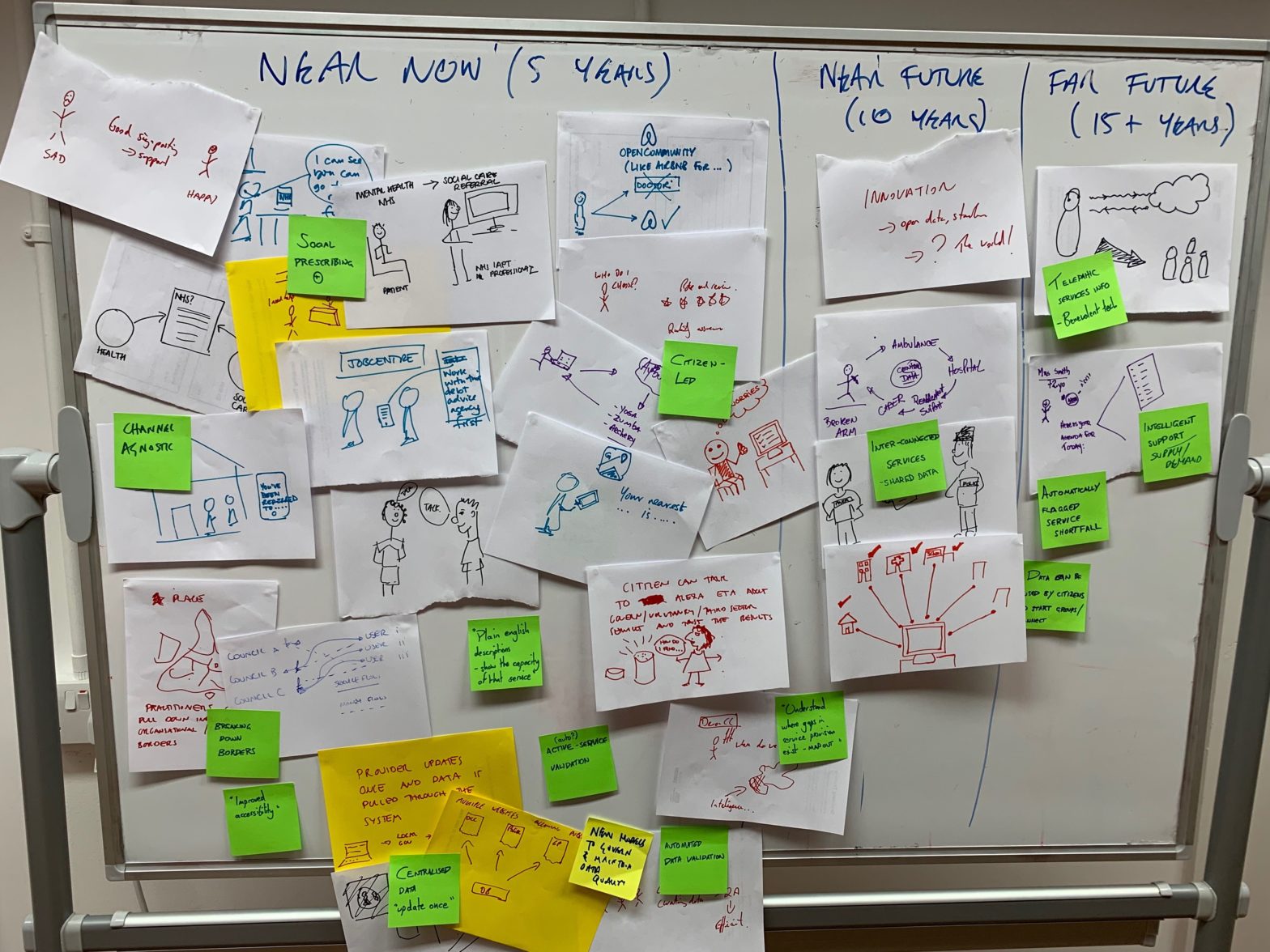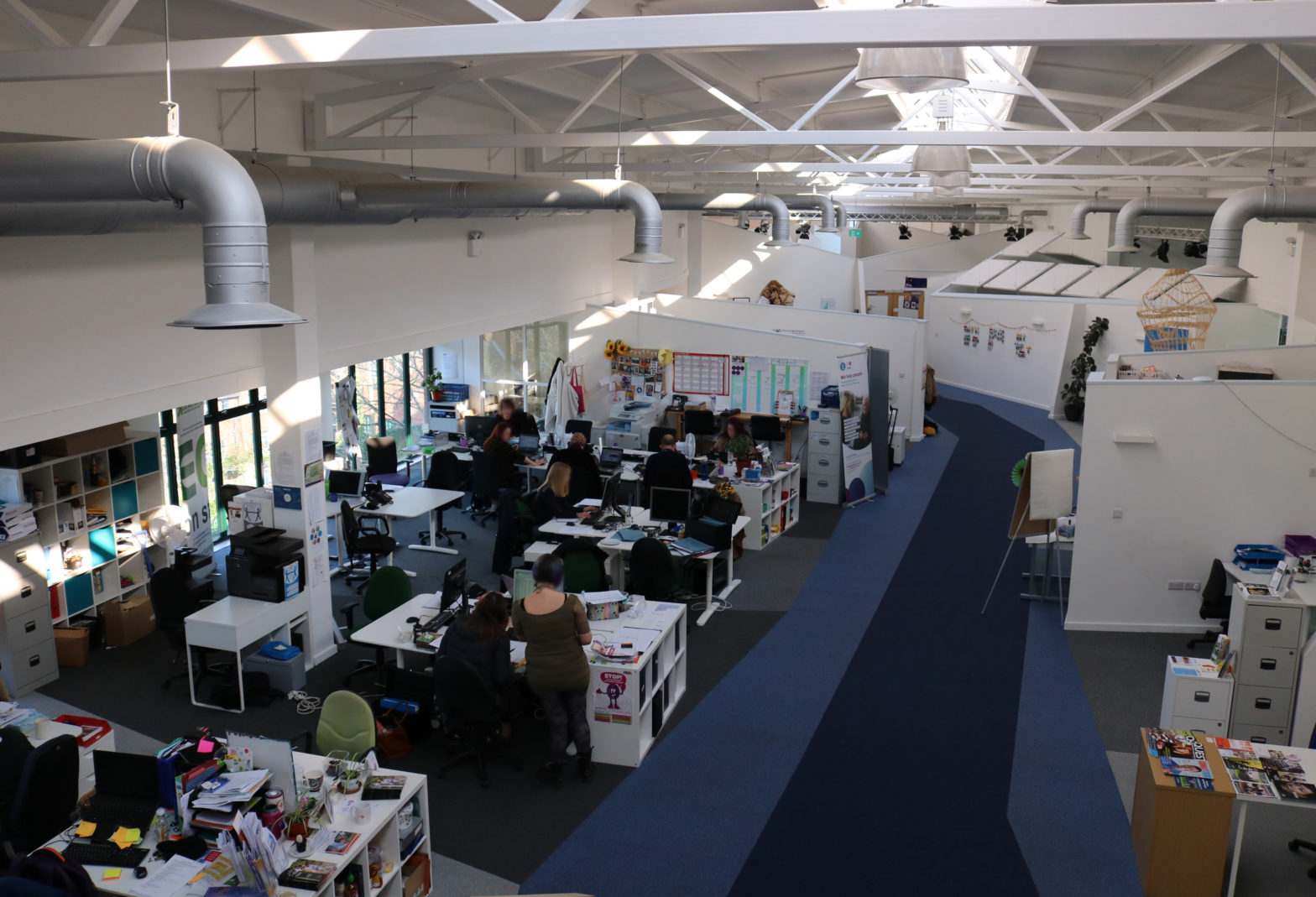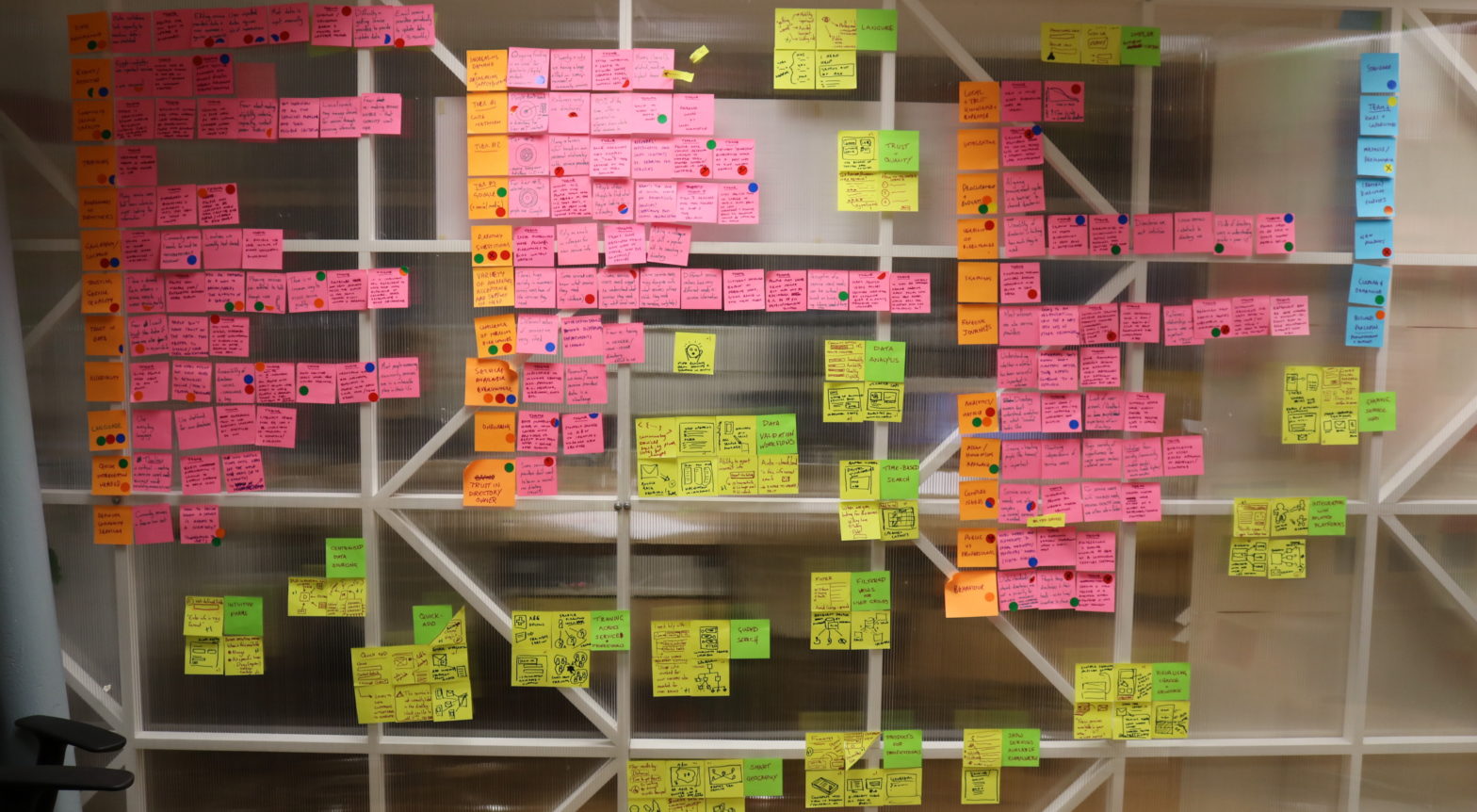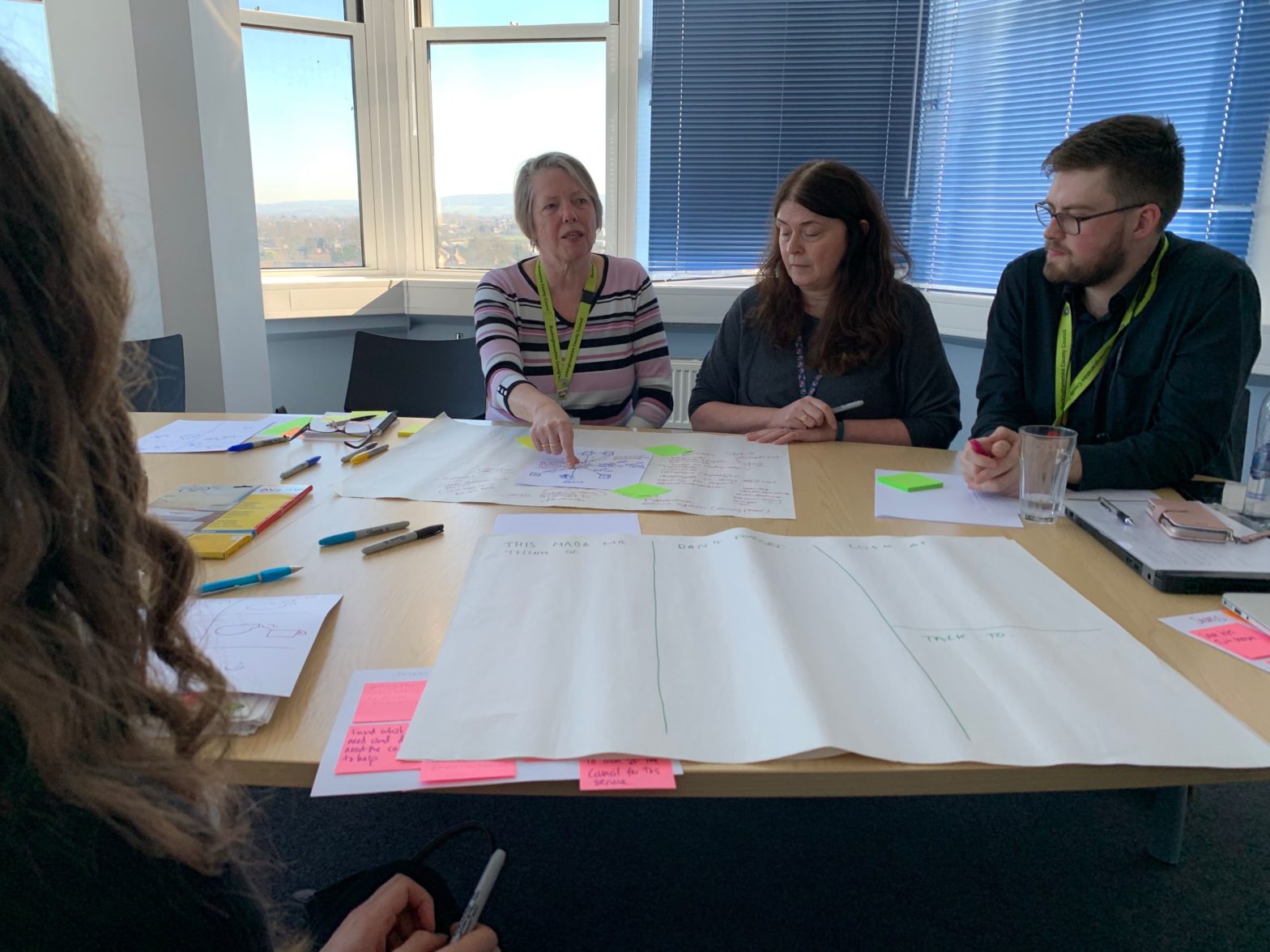Every local authority, health organisation, police force and voluntary sector organisation maintain some form of directory of locally available services, with massive duplication of effort. This project explores the case for standardising how service data is captured, communicated and quality assured. We have just completed the discovery phase.
OpenCommunity adopts extended Open Referral data standard
OpenCommunity is trialling the Open Referral UK data standard for the interchange of services information. Open Referral UK is compatible with the international Open Referral standard but it adds extra features to support UK requirements. These requirements were identified by the OpenCommunity Discovery report and by pilot council work on Loneliness coordinated by the Local Government Association on behalf of the Department for Digital Culture Media and Sport.
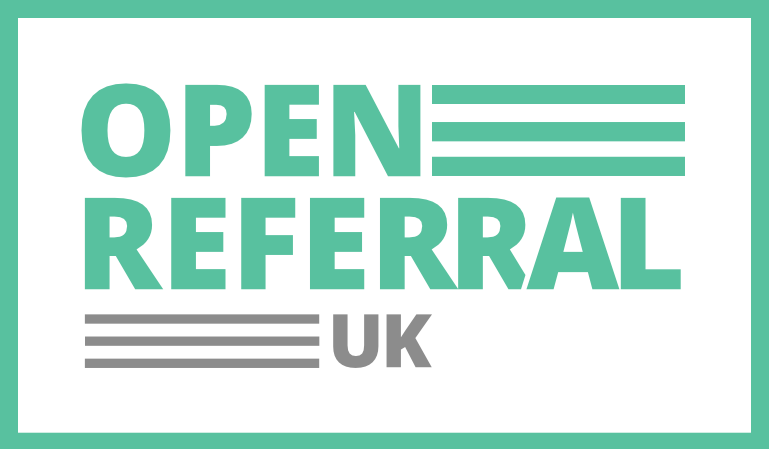
The report Prototyping an OpenCommunity Data Service model describes Alpha development work led by Buckinghamshire Council in October and November 2019 to build on the Discovery work.
The Open Referral UK website provides guidance on the data standard and links to open API endpoints for live and service directories and ones currently under development. The contacts page lets you know where to go for more help and to provide feedback as the standard matures and we develop guidance for adopting it.
Discovery phase complete – report available!
We are pleased to announce that we have completed the discovery phase of the OpenCommunity data standards project. Please download the document, read, and let us know what you think!
Introduction
Every local authority, health organisation, police force and voluntary sector organisation maintain some form of directory of locally available services, with massive duplication of effort. This discovery project explores the case for standardising how service data is captured, communicated and quality assured.
Summary
Good data standards for community services already exist. However, the ecosystem and the infrastructure required for their adoption does not. There is momentum to change this. There is evidence of demand from local authorities and a supportive environment for standards adoption from central government.
However, data standards alone will not address the underlying challenges of maintaining high-quality data about the community services landscape. It needs:
- a clear group of owners across central and local government
- coordinated investment and stewardship
- collaborative approaches to procurement of service directories and data products
- changes in culture and ways of working
- new products and improvements to current ones
This report outlines the vision for a coordinated ecosystem approach to drive the implementation of existing standards.
“ … the longer you’ve been doing the job, the more you get a little database going in your mind of who you need to signpost to. The other thing I do in my role is I’ve got a bank of hyperlinks – a directory, basically. ”
Carers charity
Key findings
This early research has, for the first time, attempted to quantify the value of introducing a common approach to community service data across the public sector:
- £7m adult social care savings nationally per year
- estimated national direct cost savings of up to £11.69m per year
- savings of up to £73,096 per year from direct costs across a typical upper-tier geographic area
- 45% of local authorities see a community data standard as extremely useful to their work
Acknowledgements
OpenCommunity is the name of the project to bring digital thinking to the challenging problem of directory-based information. It was established by Adur & Worthing Councils, Devon County Council and Buckinghamshire County Council, who commissioned this discovery work from Snook and UrbanTide. It was funded by the Ministry of Housing Communities and Local Government’s Local Digital Fund.
We have received fantastic co-operation and insight from many people, locally and nationally, and we wish to record our thanks to everyone that has participated or been in touch so far.
Next steps
We are actively planning the next phase; we are clear that this research supports the case for introducing data standards, and we intend to take forward the project to an alpha phase, where we can prototype a joined-up approach to community-based information and provision.
- If you would like to be involved or would like to be kept notified of developments, or would like to provide feedback on the discovery phase, please add your details via the form below
- You can also leave a comment against this post at the foot of this page if you prefer
- You can email us direct via Tom Dixon
Week notes #5
By Liv Comberti and Mathew Trivett
Hello.
Welcome to the fifth week notes from the OpenCommunity team. Week notes are a short(ish) weekly round up of what we’ve been learning and where we are going next.
Subscribe to get OpenCommunity week notes delivered to your inbox.
TL;DR *
Everyone is trying to reach the same end goal – a shared and accurate picture of what’s out there. But we need to get better at talking to each other and understanding each other’s respective needs regarding how to get there.
* Too long; Didn’t Read – a short summary for busy people.
About the project
OpenCommunity is on a mission to discover the need for a community-services data standard. What might become possible if all community directories in the UK were designed in a way that allowed them to talk to each other?
For more information read the original proposal from the OpenCommunity team.
Question of the week
People believe and seek information from organisations they trust. If for whatever reason they don’t trust their local council, should we work to rebuild their trust, or provide that information via more trusted sources?
What we’ve done
The post-its have been flying here in the Snook office, which means we’ve been a bit behind on our weeknotes. These weeknotes are the second part of a two part special, sharing insights from our research trip to Devon.
In our first post, we shared what we learned about the world of commissioning.
This week, we’ll share insights from our visit to Exeter Library, Pinpoint Devon and conversations with CoLab members. We will talk about how services publicise their offer and how people find them.
What we’ve learned
Feeling the community love at Exeter Library
We visited Exeter Library which is now part of Libraries Unlimited, an innovative staff and community owned mutual. Exeter Library plays a vital role as a community space. Libraries are not just big rooms of books but places where people can access support, learning, social connection, even warm clothes and of course community-related information.

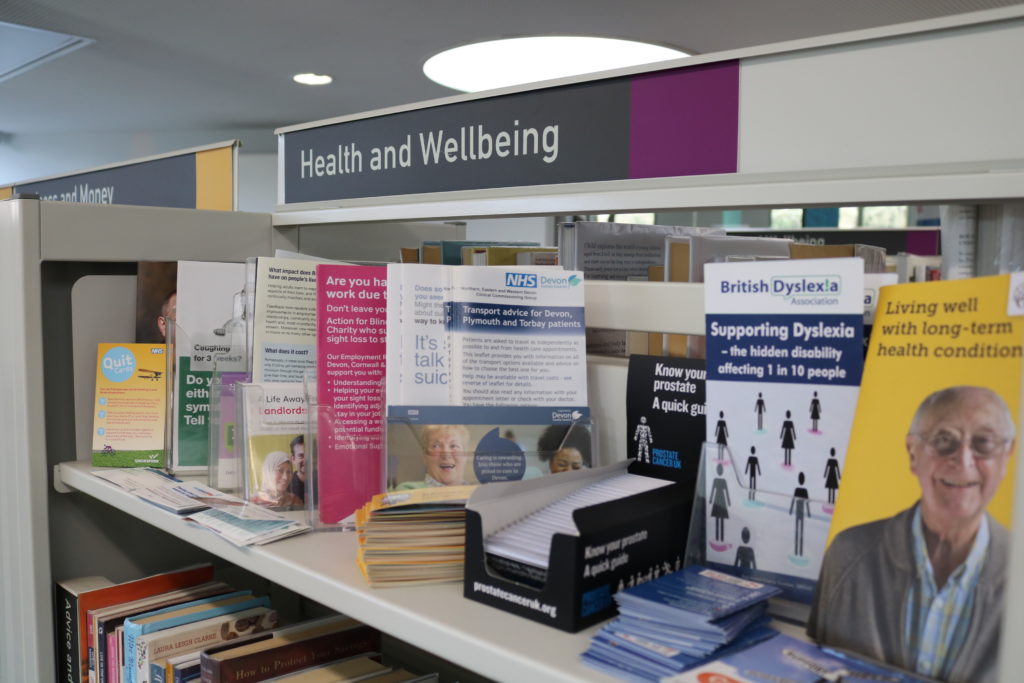
Health and wellbeing service information and advice displayed amongst the stacks 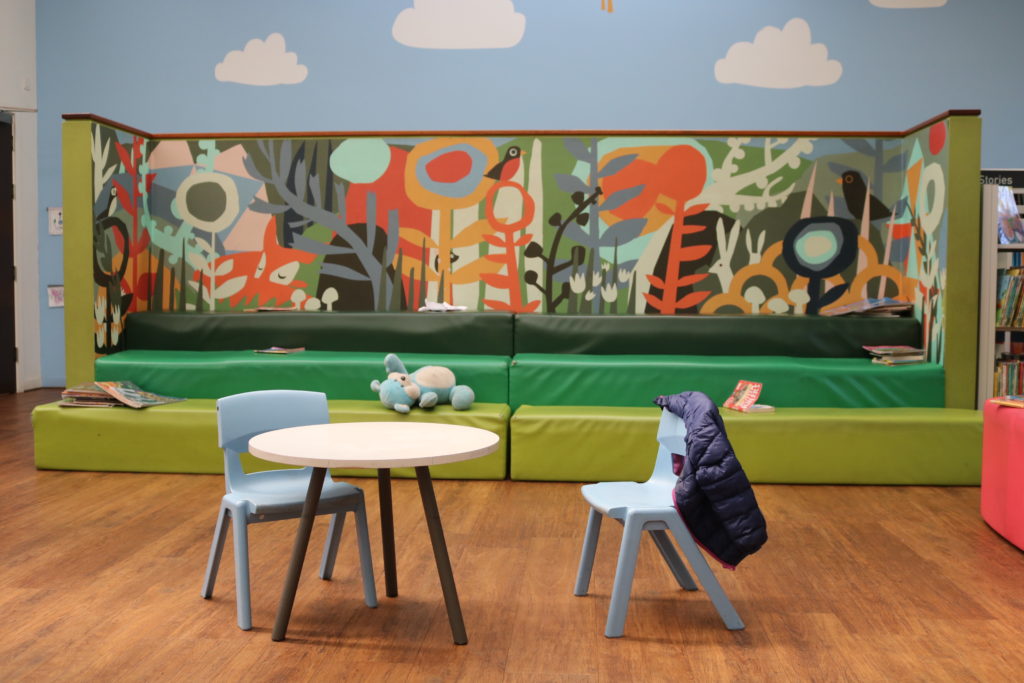
Libraries are where people expect to find community information
“People associate libraries as having resources.”
Operations Supervisor, Exeter Library
Seems obvious, doesn’t it?! Something struck us after countless conversations with people about community services. Directory owners struggle to build awareness of their directories. Community referrers go to great efforts to build and maintain their own personal lists of services. Service providers struggle (through completely different channels) to promote their services. Libraries, however, don’t seem to share these problems. Providers see the library as a trusted channel to reach the right people with their offer.
The system is rudimentary: community service information consists of ring-bound folders crammed full of flyers in plastic wallets, which are routinely updated by library staff. Finding the information you need this way seems trickier than searching even a poorly designed digital directory.
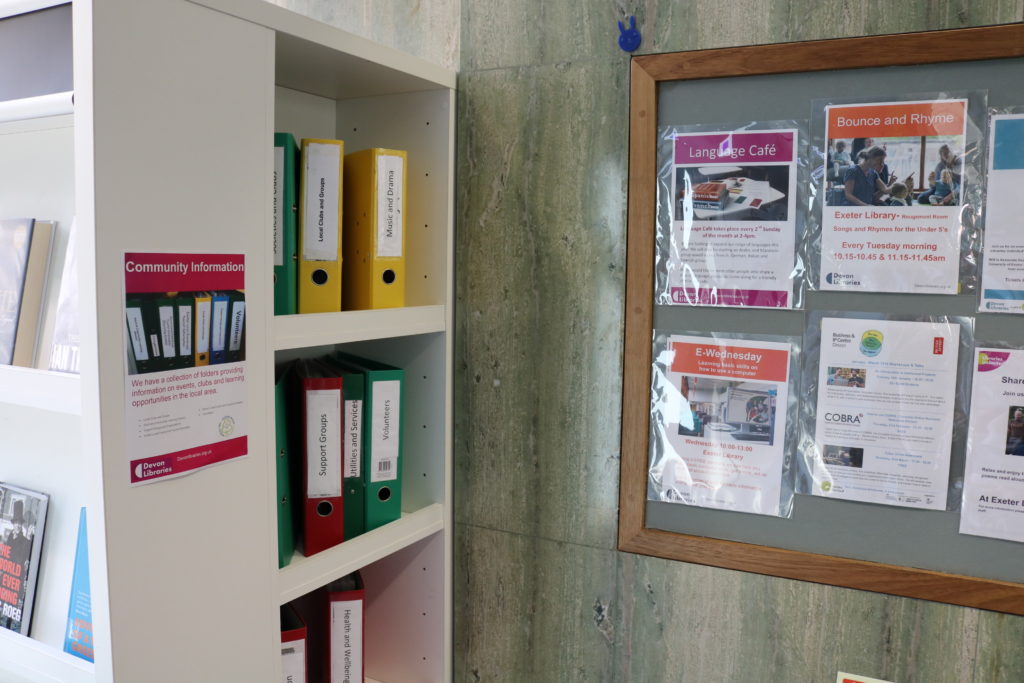
So why are libraries trusted in a way that council directories seem not to be? Is it a question of awareness (people expect to find this information in libraries), users’ lack of digital access or trust?
“Twenty years ago I’d say if the county council were providing that information I’d assume it’s correct. But now I’m not sure. Not because I think they’re untrustworthy, just because of time. I think they’re as time poor as we are.”
Operations Supervisor, Exeter Library
Digital can’t be the only answer
Lack of digital access is certainly a factor. Many people use libraries to find service information because they don’t have their own computers, or are not digitally literate. For them, paper based information or speaking to a human is far more helpful than reading something digital.
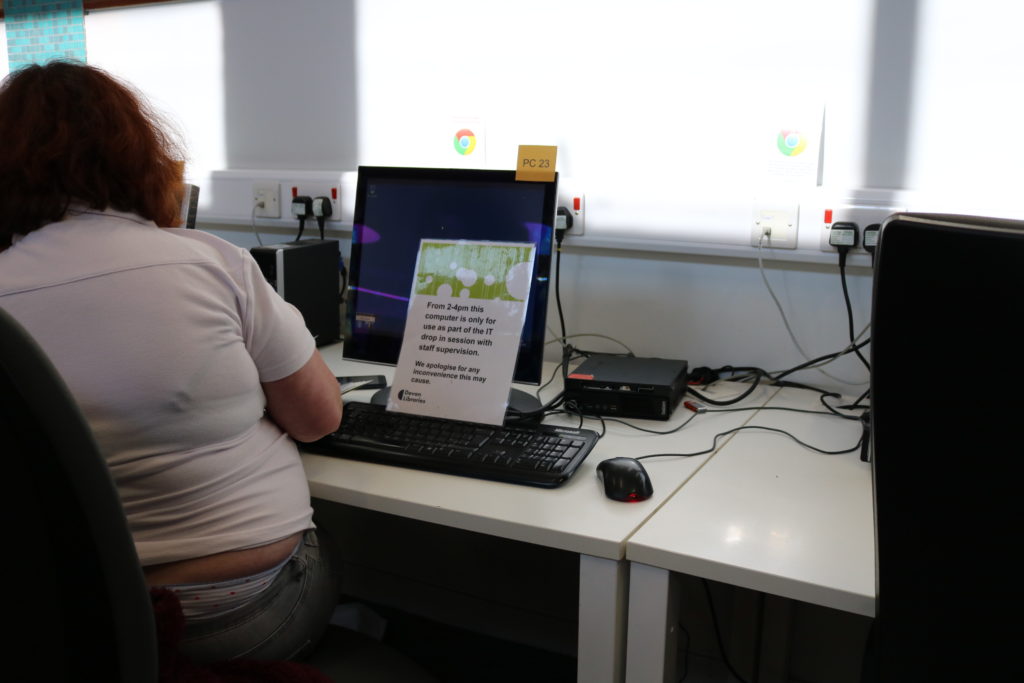
Pinpoint Devon Team
Pinpoint is Devon County Council’s shared directory of services for the whole of Devon County. Unusually, Pinpoint managed to merge their Family Information Service and Adult Social Care information into a single directory. Perhaps as a result, Pinpoint was the most used and talked about directory of those we visited.
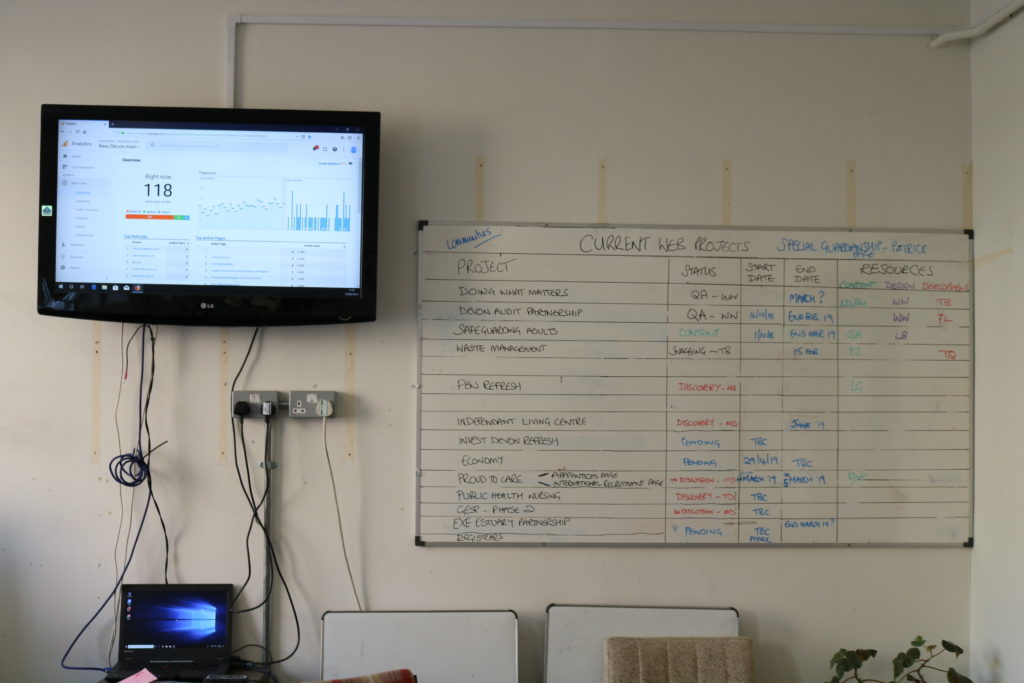
A screen in Devon County Council’s digital office displaying analytics.

A warning on longevity
We spoke to a member of the team responsible for Pinpoint, who taught us about the history of community directories in Devon. A joined up national directory, it seems, has been successful in the past. But government structure and strategy changes can threaten the longevity of these solutions, seemingly irregardless of their success.
“Parent Know How was a national directory of family services. It made it simple for people living and working in different local authorities to find an appropriate service.
Data custodian, Pinpoint Devon
But 2010 came and the government changed. The government decided they didn’t want Parent Know How and pulled the plug. It disappeared overnight. A parent looking for a service afterwards would have to go to their local authority, but most of the directories would just have the local flavour and no national flavour.”
The challenge of sharing data across directories
Pinpoint have learned valuable lessons about some of the challenges of reconciling service information across their family and adult service directories. It’s not just about avoiding duplication. Some entries written for a local or sector-specific context won’t make sense when pulled into a different directory.
“Common duplications might be for listings such as sports centres, that offered activities for both children and adults. In one directory the description would be tailored to children, the other one to more general services.”
Data custodian, Pinpoint Devon
Social prescribing from a service providers’ lens
We wrote last week about the necessity for accurate community services data in the world of social prescribing. It was interesting to understand this from the other side, by speaking to two service providers: Devon Carers and Drink Wise, Age Well, both members of CoLab.
Both sides are trying to talk, but through different channels
Community service providers invest significant time in building awareness of their offer amongst GP surgeries and other statutory professionals (e.g. hospitals). This is a challenge, with one expressing frustration at trying to get their information past practice managers.
“We have a prevention and campaigns team, a set of 4 people who are specifically going out to organisations, making sure they know we exist. Right now, we’re working to engage with hard to reach people in rural areas. I think for them, GPs are the way in.”
Drink Wise, Age Well
We heard last week from commissioners that there is also high demand for information about these services from GP surgeries, ambulances, hospitals, pharmacies etc. But the channels they use are very different.
“GPs are constantly asking us to do a directory and share it with them, everyone is.”
Community coordinator, CoLab
A joined up directory is only one tool of many that providers would use to drive awareness of their offer. Service providers need to use channels that are effective at reaching their target audience.
Community connectors can help, but the cost of using directories has to be worth the effort
Smaller voluntary-sector organisations are typically less tech savvy, which means that adding their information to a directory needs to be simple, or supported. Further, if they already have enough people accessing their services, they have no incentive to list them anywhere else.
“We have a community initiative fund for community sector organisations in Adur and Worthing. They have to apply via an online platform. But it’s asking for more information than it used to, so people are struggling. There are lots of pages to fill in, lots of stages. If they’re doing a small project, or not good at using computers, it’s quite alienating.
Partnerships Manager of a CVS, Adur and Worthing
Ultimately people do things because they want to see results. So if they have enough people turning up to their events to make it viable then that’s all they care about.”
Furthermore, some community services are sensitive, and cannot be made public. We heard stories about support services for domestic abuse victims or rehab clinics which had to keep their locations hidden from those who might target their attendees.
Short term commissioning doesn’t help
Short term funded services compound the difficulty of building awareness. Because so many of these vital services are awarded on one to five year contracts, the first few of those years are spent building awareness of what they do. Then at the point when they are delivering maximum impact, they are cut. GPs understandably struggle to keep up to date with those changes.
“We’re only a 5 year project, ending in March 2020. After that, there’ll be lots of people who need our help and we won’t be around! At the moment, we’re focusing on leaving a legacy of tools and learning behind, so all our work doesn’t go to waste.”
Drink Wise, Age Well
Where we’re going next
Next week, we’ll be sharing our reflections on how an OpenCommunity standard might be implemented and what value it could offer. Stay tuned.
Week notes #4
By Liv Comberti and Mathew Trivett
Welcome to the fourth week notes from the OpenCommunity team. Week notes are a short weekly round up of what we’ve been learning and where we are going next.
Subscribe to get OpenCommunity week notes delivered to your inbox.
TL;DR *
We need to get better at thinking about health and social care holistically. Some of those challenges are technical, but many are about aligning cultures and expectations.
How do you ensure a sufficient quality of data in a constantly shifting landscape?
* Too long; Didn’t Read – a short summary for busy people.
About the project
OpenCommunity is on a mission to discover the need for a community-services data standard. What might become possible if all community directories in the UK were designed in a way that allowed them to talk to each other?
For more information read the original proposal from the OpenCommunity team.
Question of the week
If community-services data is so critical to our vision of integrated health and social care, what might be its price tag?
What we’ve done
Last week we wrapped up our first round of user research in Devon. In Devon, we focussed on the needs of service commissioners and service providers.
It’s been a busy few weeks with all sorts of exciting developments, so these weeknotes are from a few weeks back when we took a research trip to Devon. We’ve split our insights over two posts. In this post we share our learnings about the world of commissioning.
In next week’s post, we’ll share insights from our visit to Exeter Library, Pinpoint Devon and conversations with CoLab members. We will talk about how services share their offer and how people find them.
What we’ve learned
NHS Directory of Services (DoS)
One of the primary use cases for standardising community services data is the growing need and interest in integrated health and social care. We spoke to one of the DoS leads for Wider Devon. The NHS DoS data powers health information services, particularly in Urgent and Emergency Care, for example 111 and paramedic teams. It offers rich, robust and real-time data on available health services matched to a person’s needs and location.
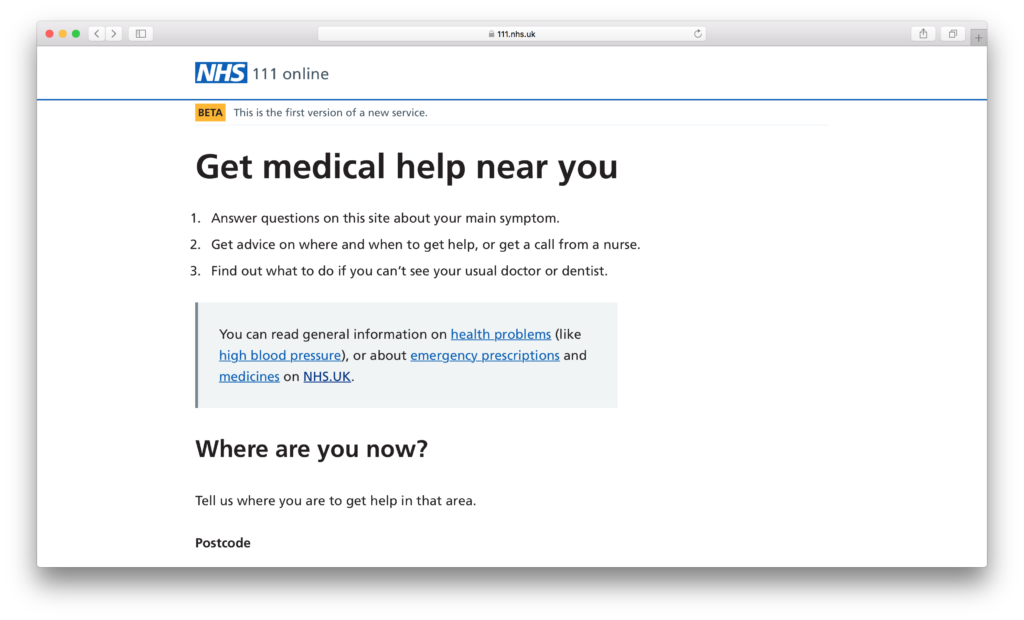
Interestingly though, data in the DoS is not public. At least not public in the way local authority service directories are. The NHS DoS data works as national infrastructure to help triage people to the right services at the right time. A few weeks ago Steven shared some great work looking at the governance of the NHS Directory of Services to see what we could learn.
Tackling integrated health and social care is not just a technical standards issue but one of trust. The NHS has high thresholds for safety and quality. How might the NHS trust services over which they have no control, especially without overburdening community- service providers?
We are still debating as a system how we will quality assure and in some instances formally refer or signpost people to services we know little about. There’s been some work done developing a quality mark of services. But how do we want to assure ourselves without breaking the energy and vibrancy of that sector by whopping great contractual obligations around it?
NHS Commissioner
Not unique to integrating health and social care, but significant, is the challenge of duplication. Managing duplication isn’t possible until directory owners share their data. Then there comes the issue of whose data do we trust and use as ground truth? Do we implicitly trust NHS data over community services data, particularly as they share similar challenges of maintaining data?
Some databases have stayed stagnant for years. I would hate to be part of sharing a database with someone whose information I can’t trust.
NHS DoS Team
Commissioning adult social care
We spoke to a senior commissioner from adult social care in Devon. We learned a bit about the difference between regulated and unregulated services.
Regulated services are usually paid for, mostly or in part, by the local authority. They are regulated by the Care Quality Commission. Regulated services often involve physical contact or personal care with a person. For example helping them to wash, eat, take medication or move around their home.
Unregulated services typically involve less physical contact with people. For example helping people to keep active, preventing loneliness, or helping them with shopping.
As with all our conversations, adult social care shares the same challenges of growing demand and diminishing supply.
“A real driver [to our need for community services data] is the recruitment and capacity of care providers. We end up using our own teams to handle that demand. We talk about winter pressures, but it’s just all year around really. In winter there’s more demand and it’s harder to recruit. But now the bump is all year round.”
Adult Social Care Commissioner, Devon
In Devon, they’ve taken matters into their own hands by building internal tools to help them compare demand with supply. They’ve used these tools to support collaboration between care providers to improve efficiencies, for example looking at how care staff travel between clients.
Commissioners need to be able to respond to people’s care needs quickly and to compose holistic care packages that combine regulated and unregulated services. An OpenCommunity standard would allow them to include community services as part of that unregulated care offer.
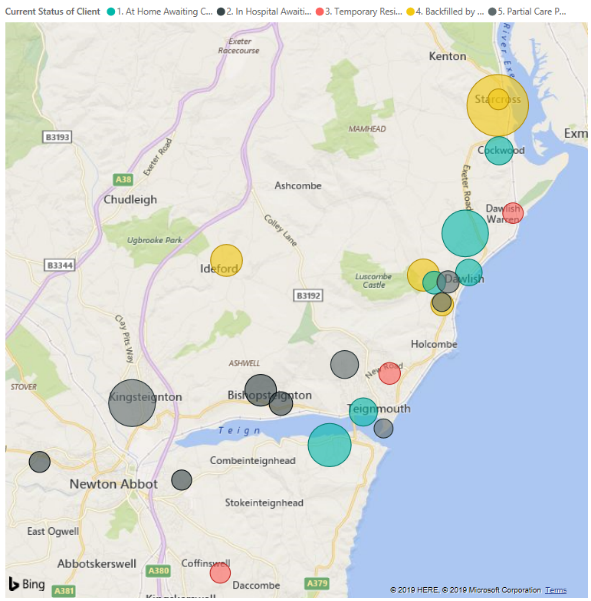
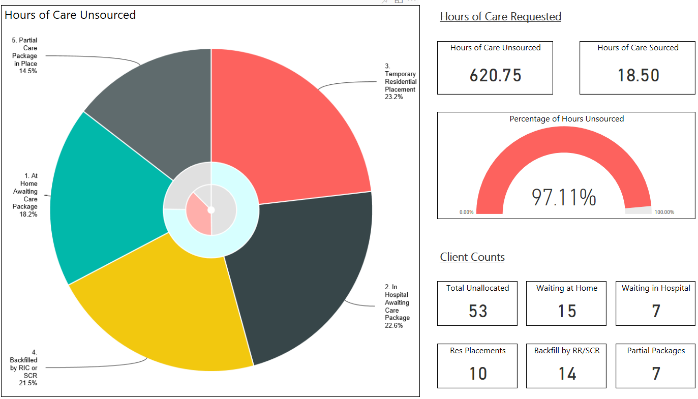
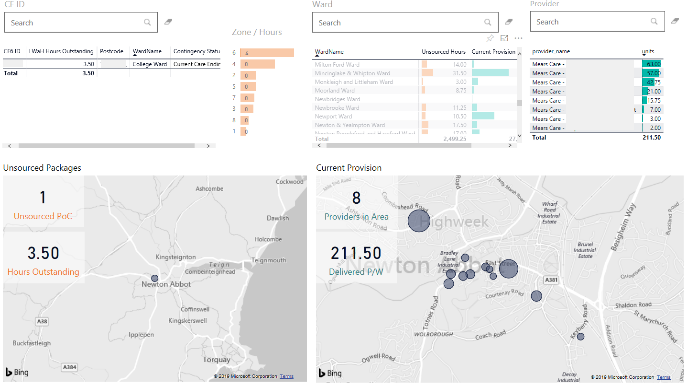
Devon adult social care tools to compare demand and supply
Colab Exeter
CoLab Exeter are an inspiring example of integrated health and social care in action. Originally a CVS, they restructured by identifying four main challenges facing Exeter. Their collaborative workspace now brings together organisations under one roof to tackle those.
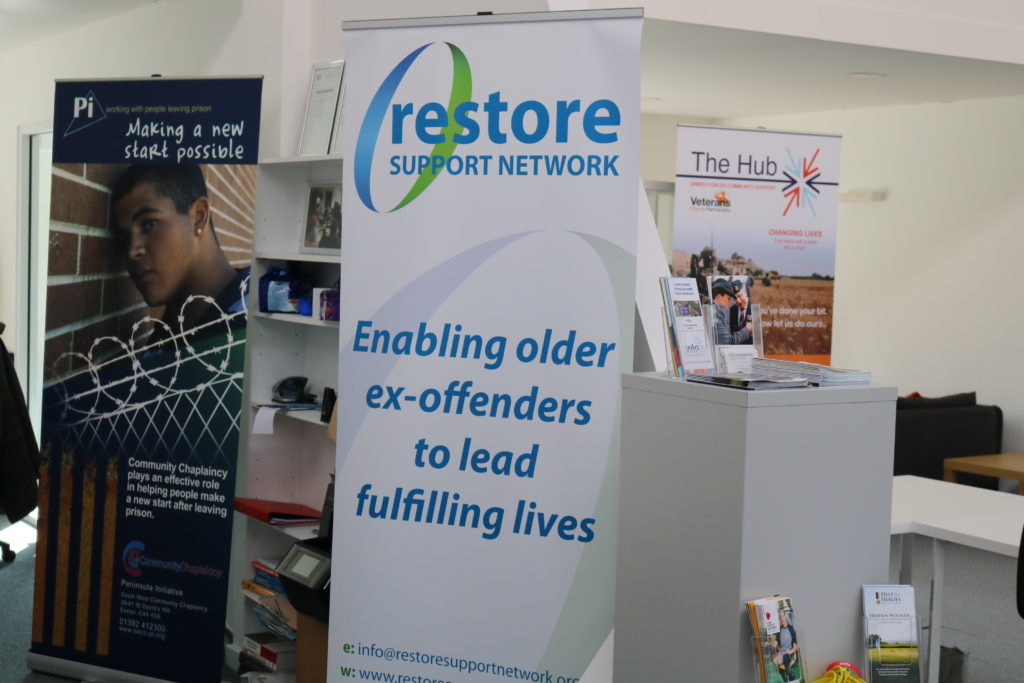
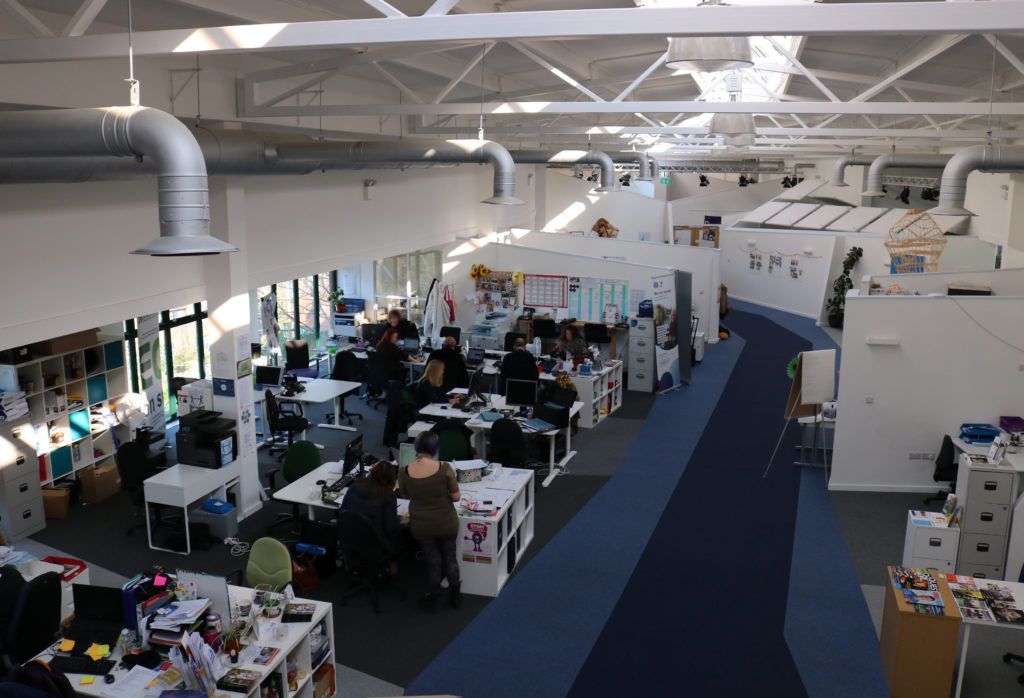
CoLab an integrated community services hub
“This is your problem” is a very expensive sentence.
People’s service needs rarely exist in isolation. For example someone who is homeless may require housing, addiction support and mental health services. However when commissioning and success metrics are siloed, that homeless person is more likely to slip through the gaps. “This is your problem” is a very expensive sentence. Deflecting people when they’re vulnerable makes their situation much more difficult.
So lets say I’ve just left prison, I don’t have stable housing lined up and I have a heroin addiction. Currently, there’s about a 4 month wait for a methadone script. So until then I’m going to continue to use heroin. That’s the nature of addiction. If I’m then found with needles in my room, I’ll be kicked out of the shelter I’m in, so made homeless. So because of one service failure, that has a knock on effect on another.
CEO, CoLab
Taking a joined up, holistic approach creates drastically improved outcomes. CoLab are pioneering a new approach to commissioning. Alliance commissioning shares the responsibility for a person’s outcomes between the services they need.
Alliance commissioning is becoming increasingly popular. It means getting community organisations to work differently. Forcing people to collaborate by putting them all into a single contract. If one fails, you all fail. So you have to support each other to do your best work.
CEO, CoLab
Digital solutions alone won’t save people. Humans will
CoLab spoke about how traditional referral is via email. It risks creating a psychology of “you’re this person’s problem now”. For service users in vulnerable situations, that can leave them feeling unsupported and constantly in limbo. At CoLab, the services that a person needs all exist under the same roof, and people are introduced to people, rather than services.
There is a world of difference between being introduced human to human and being sent an email. It’s human to human contact that changes people’s lives. Not services.
CEO, CoLab
Commissioners and service providers need to talk
Service providers working on the frontline have valuable insights on what creates change in people’s lives. Being able to feed their insights back and work more closely with commissioners is vital to creating a more impactful and successful service provision and society. However, when community organisations’ futures rely on commissioner’s contracts, effective dialogue and therefore innovation is difficult. “You don’t bite the hand that feeds you”.
Where we’re going next
Next week (well, last week now), we spent a whole lot of time listening back over interviews and synthesising our research. Stay tuned for weeknotes #5, where we’ll share insights from our visit to Exeter Library, Pinpoint Devon and conversations with CoLab members.
Week Notes #3
By Liv Comberti and Mathew Trivett
Hello!
Welcome to the third round of week notes from the OpenCommunity team. Week notes are a short weekly round up of what we’ve been learning and where we are going next.
Last week we were busy synthesising our research from Adur & Worthing and Buckinghamshire – read on to find out what we learned.
Subscribe to get OpenCommunity week notes delivered to your inbox.
TL;DR *
We turned our research notes into post-its, covered them in colourful dots and sketched concepts. Now we have 180 common themes, 33 categories and 67 concepts. But there may be only 8 themes that a community services standard could meet alone.
* Too long; Didn’t Read – a short summary for busy people.
About the project
OpenCommunity is on a mission to discover the need for a community-services data standard. What might become possible if all community directories in the UK were designed in a way that allowed them to talk to each other?
For more information read the original proposal from the OpenCommunity team.
Question(s) of the week
Who are we building service directories for anyway? Who do we think is using them? And how do we know if they are useful?
(Spoiler alert: it’s worth checking if they actually are.)
What we’ve done
Last week we read through our research notes and listened back over the 28 conversations we had with people in Worthing and Aylesbury to spot patterns and opportunities. From this we identified around 180 common themes(!), and clustered them into 33 top-level categories.
We recognised early on in our research that a data standard can’t solve everything. We worked through each theme to consider which challenges might be met through a common standard, and which needed to consider other factors – such as new business models or improved directory products. We then sketched out a total of 67 initial concepts in response to our themes that we could mock up and test with users.
To explore that analysis in detail you can read our synthesis spreadsheet. From next week, we will also share our findings on the user research library. Feel free to take a read, comment and ask questions.
Otherwise, check out highlights from what we learned below.
What we’ve learned
You may recognise some of the themes in our synthesis from our last week notes.
It would be overkill to discuss each theme in turn, so we’ve pulled out a few of our highlights. It’s interesting to note that of the 180 themes we spotted, we think only 8 could be met solely through a standard.
Timeliness is key
A speedy intervention was mentioned by several as a priority. At Turning Tides, one member of staff mentioned:
“If we can get someone off the street within the first week of being homeless, our success rate is pretty good. The effects of rough sleeping mean people can spiral out of control really quickly, and so after that they could be there for years.”
Street Outreach Worker, Worthing
With waiting lists, difficult to find services and hoops to jump through to find someone who can help, it seemed that each bounce to a new service provider exponentially increased the cost of providing care and support to that individual.
National service providers
National service providers, including phone lines and online chat services provide a challenge to localised directories. National providers are being asked to submit their information in different formats to many local directories. Some aren’t listed at all, and some directories, which list results by location, struggle to display services available ‘everywhere’.
“It’s really hard to get national organisations to create their records. Some have created a page and put the basic information in. Some won’t register with us. RNIB are on, but that’s rare for a large organisation.”
Data custodians, Buckinghamshire County Council
Big effort, little reward
The burden of updating information is generally placed on providers, who are over-stretched for time, resources and tech know-how. Whilst undoubtedly providers have the most up to date information about their services, directories don’t currently provide a sufficiently useful channel for finding new clients. As services and programmes change with funding, a significant effort is required to keep directory listings up to date. Big effort for little reward.
“Lots of smaller organisations don’t have the overheads and size to share information about themselves. We have a funding platform we ask community initiatives to add their information to. But it’s asking for more than it used to, so people have struggled. Lots of pages to fill in, lots of stages. If they’re doing a small project or not good at using computers, it’s quite alienating.”
Community Works, Worthing
Experienced staff don’t need directories
We found that those who had been in their role for many years typically didn’t need directories. They already knew most services they needed to refer people to. The rest were so niche that Google was often faster and more reliable than turning to a directory. Last week we talked about the three referral tiers. Experienced staff seem to carry a “database in their head” of services and contacts in both tiers 1 and 2.
“You stick to what you know, if you’ve built up a relationship with them. It’s tricky but you go with what you know, what’s worked well with other families”
Frontline family worker, Adur and Worthing
Existing directory providers have a lot to answer for
The usability of the directories we saw left a lot to be desired, and unquestionably had an affect on their rate of adoption. Although most directories offer affordable software, the staff time involved in wrestling manual updates and driving adoption mean that running costs are effectively much higher.
No one seems to have thought about what success looks like
Whilst most directory owners we spoke to used analytics, none appeared to have the confidence or time to invest in measuring success. Similarly, whilst huge efforts were made to keep directories up to date, we sometimes had the sense that directory teams weren’t clear on who directories are for and whether they are actually using them.
Legal obligation vs user need
Local councils are legally obliged to provide service information and advice for families, adults with care needs and people at risk of homelessness. However, should we question whether current directory products really meet the user needs these laws were created to address?
In response to those challenges, we had a first pass at sketching possible solutions
Some of these may offer solutions, others we hope will spark deeper conversation. We hope to test them out with users over the coming weeks. You can view a full summary of our ideas in the synthesis document.
Data validation workflows
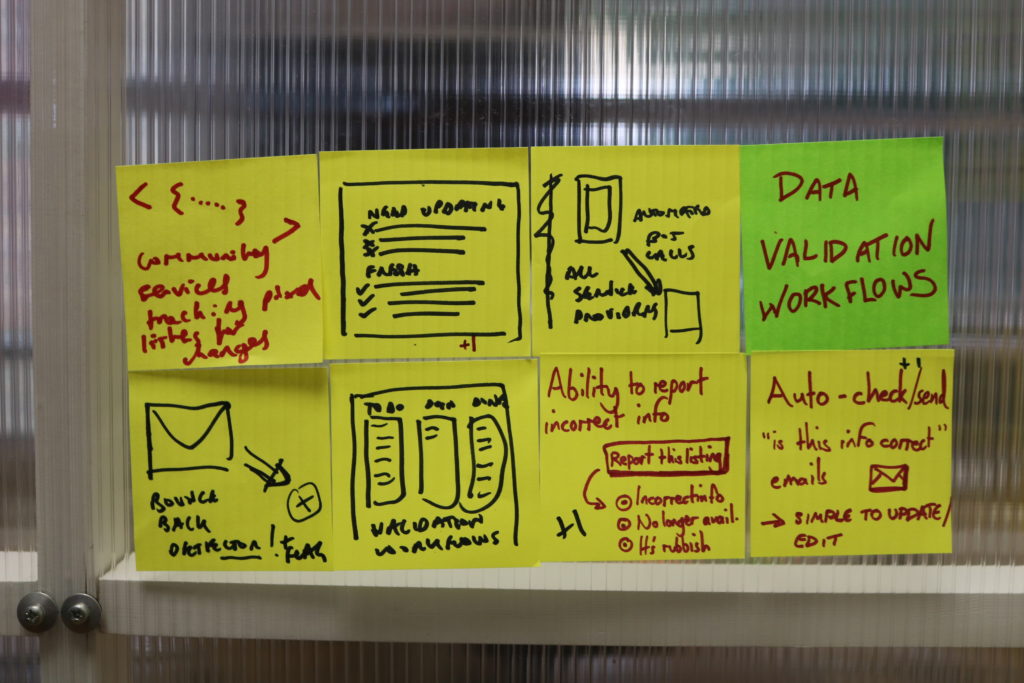
Tools to simplify the validation of service data. Including embeddable tracking code to monitor website changes, tools to flag and report incorrect data, a data custodian interface and checklist to validate and update records.
Quick-add service data
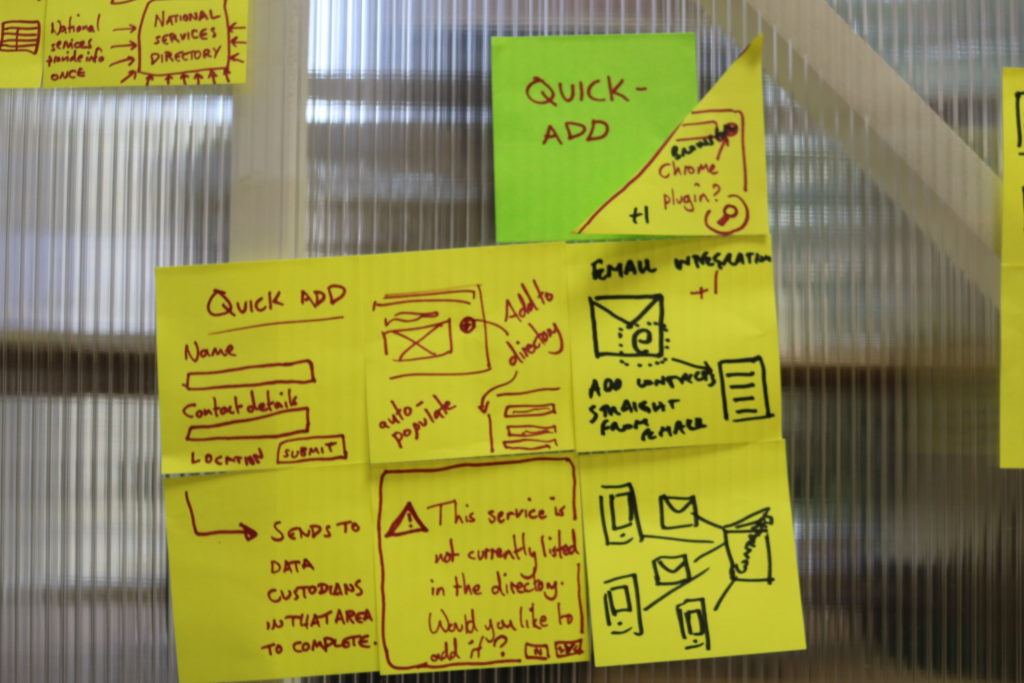
Overcoming the time it takes for providers to add their information by making it simpler for services to be added to the directory. Including quick-add widgets, email integration and mini-forms to capture basic information.
User-led triage and search discovery
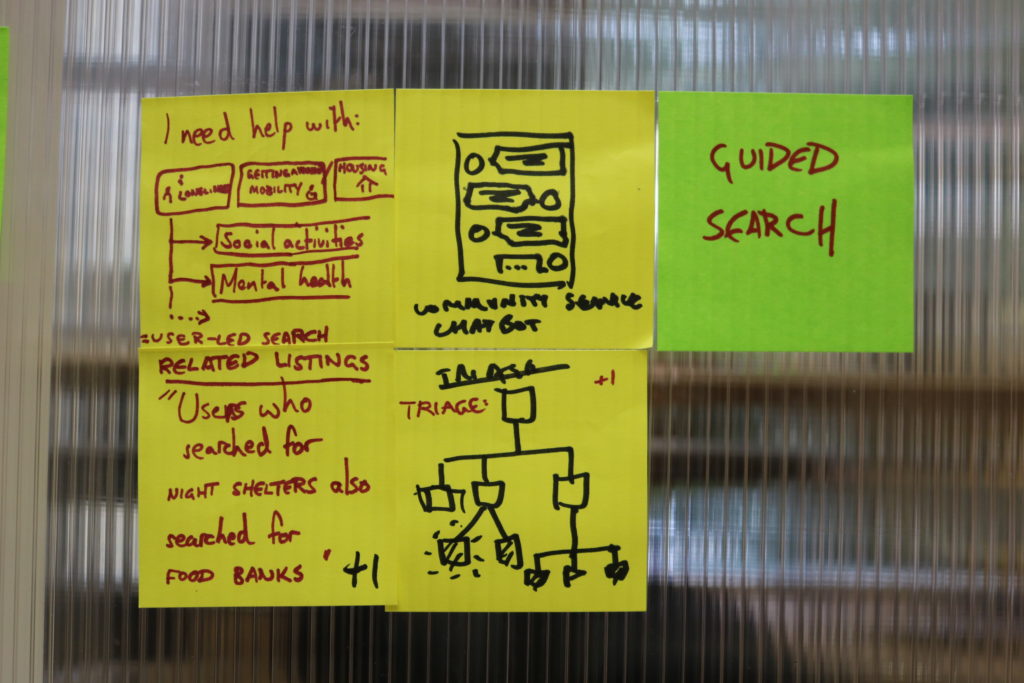
User friendly triage to discover appropriate services. Including a chat bot, guided search and related listings.
Contacts finder products for professionals
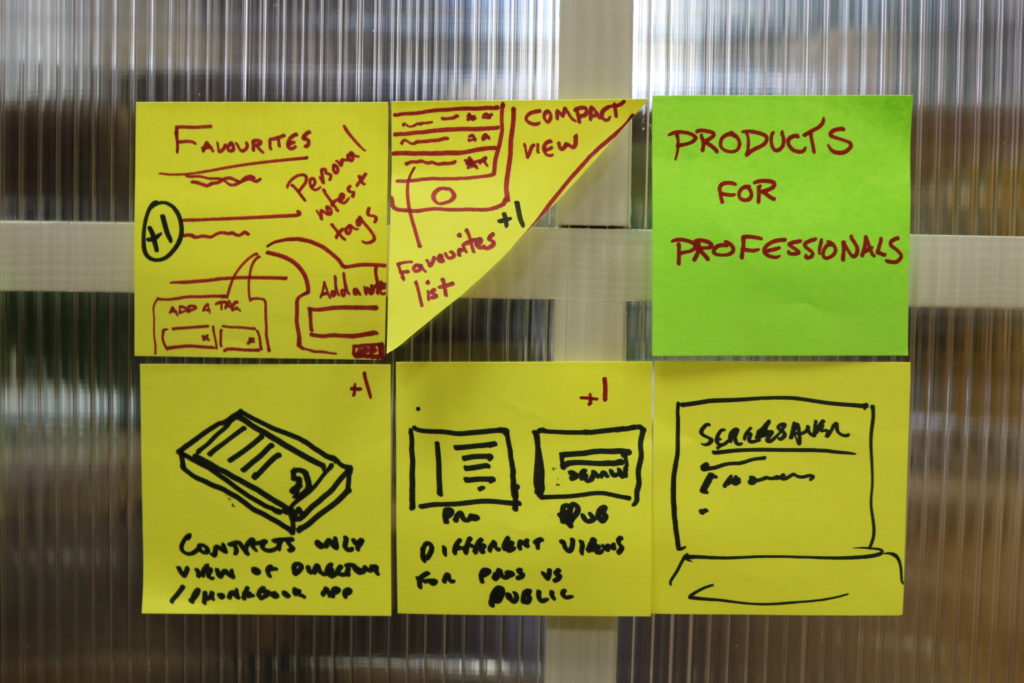
Providing compact, simple views of key contacts for professionals. Meeting tier one needs, whilst also keeping this information up to date.
Intuitive forms
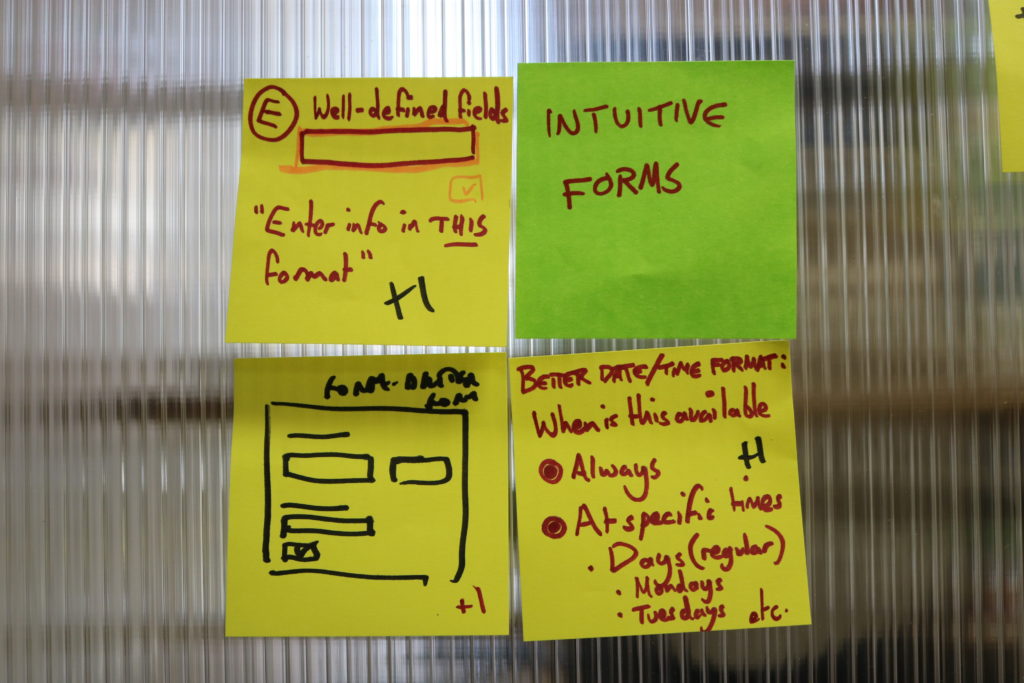
There’s a lot we could learn from the GDS design system regarding the forms through which service providers input information about their services.
Centralised data sourcing
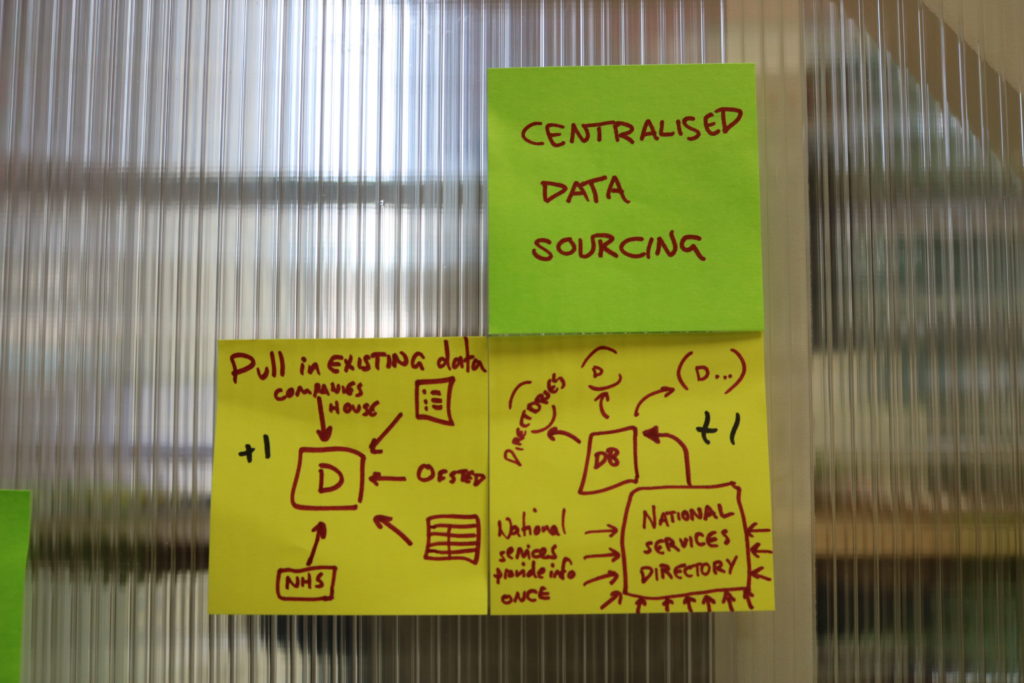
Pulling in data from trusted sources and national providers means they could update once and list their services everywhere.
What we’re up to next
Next week we’re continuing our user research in Devon* where we’ll be meeting adult social care and NHS commissioners, the folks behind the Pinpoint directory, Colab Exeter (a collaborative hub of health & wellbeing organisations) and Exeter public library.
Stay tuned next week to find out what we learned.
*actually we just left – we’ll get back on track with writing these weeknotes next week!
Thanks!
Thanks to everyone we spoke to in Worthing and Aylesbury for all your support and the generous time you gave us. Including Rhian for doing an amazing job at connecting us to people, Ryan at Turning Tides for letting us hang out all morning, Carl and Georgina for giving us hope in humanity, Citizens Advice for letting us steal them away from the frontline for 30 minutes, Liz, Ryan and Della in Bucks for letting us ask super geeky questions about your spreadsheets, Lianna and Eleanor for making us feel much less afraid of the prospect of getting old, and also Mel, Paul, Maddie, Lee, Ben, Karen, Simon, all the James’ and everyone we met at Turning Tides. It’s been a pleasure meeting you all!
Week notes #2
Welcome to week notes from the OpenCommunity team. Week notes are a short weekly round up of what we’ve been learning and where we are going next.
Subscribe to get OpenCommunity week notes delivered to your inbox.
TL;DR *
Service directories don’t always align with the behaviours and needs of the people they are designed for. Under-investing in service directories may result in much bigger costs further down the line.
* Too long; Didn’t Read – a short summary for busy people.
About the project
OpenCommunity is on a mission to discover the need for a community-services data standard. What might become possible if all community directories in the UK were designed in a way that allowed them to talk to each other?
Read the original proposal from the OpenCommunity team.
Question of the week
If we can’t even un-silo our office milk, how can we un-silo service directories?
What we’ve done
Visited Worthing Council
- We met some people doing incredible work around homelessness services, making sure that people in tough situations are treated like humans.
- Saw some inspiring examples of social prescribing in action, and hearing how it’s making work lighter for GPs.
- Met people doing the hard work to make service information more accessible to those who need it.
- Witnessed some impressive examples of office milk silos. But we all have our own budgets, right?! 😬
Visited Buckinghamshire County Council in Aylesbury
- Saw some mind-boggling spreadsheets
- Had a romantic post-it fuelled Valentines dinner planning a focus group – to explore what the ultimate shared directory would look like, and what challenges would need to be overcome to get there.

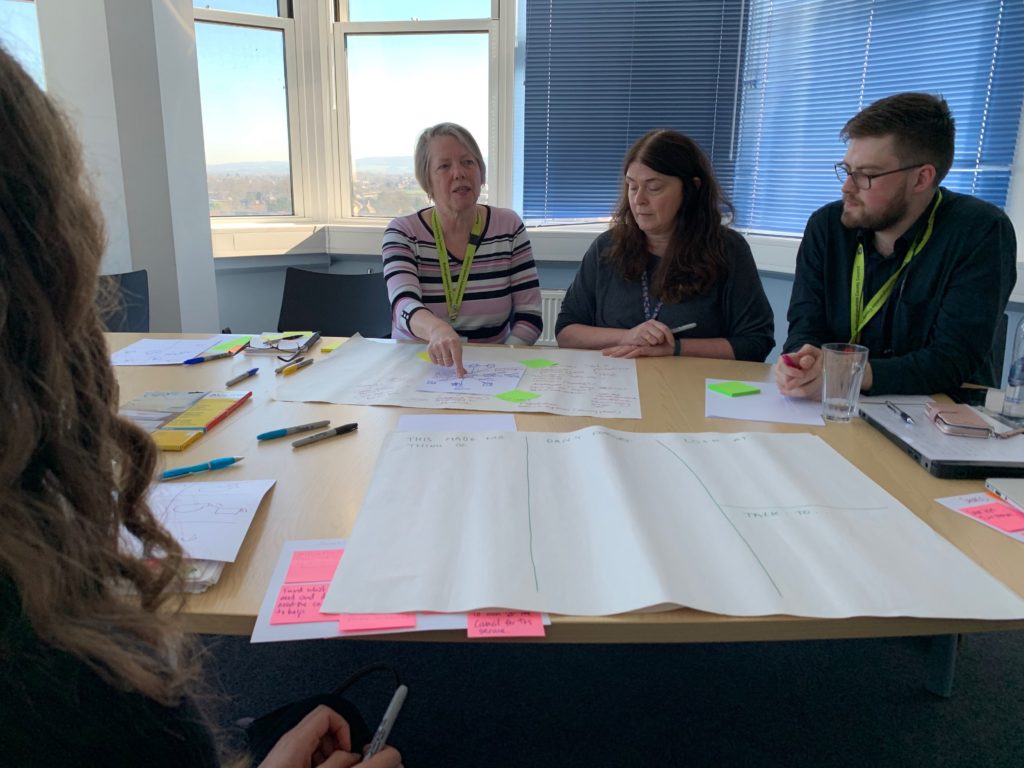
- Bucks basically solved the problem of how to create and implement a shared directory. So that’s our work over then.
- Ran our first show-and-tell from under a sea of post-it notes.

- Danced in front of a singing Bowie statue.
Back in the studio
- Steven started to explore governance models for an OpenCommunity standard.
- Rory began to sketch out a design for the OpenCommunity standard.
What we’ve learned
There are three tiers of referral relationships
We discovered that those who make referrals regularly rarely use service directories. There seemed to be three tiers to people’s referral habits:

1st tier: Services who referrers contact daily. These may be on a printed list in the office, or in their phone address book.
2nd tier: Experienced referrers probably know these people too. They tend to prioritise services with whom they have a relationship. Some might use a personal directory at this level, for example in a spreadsheet or email folder. Less experienced referrers may use a directory or Google for this tier, or may ask colleagues for suggestions.
3rd tier: These are services that referrers very rarely refer to, or have to look up especially. Most used Google to find these services.
Better than Google?
Most referrers we spoke to used Google rather than service directories to find community services. Which begs the question – who are directories really for anyway?! If a directory is not easier or more reliable to use than Google, people probably won’t use it. Google is good – but requires a lot of trawling.
Managing service directory data takes a lot of work
A LOT of work goes into maintaining service records, and verifying their information. Like, a LOT. This is a burden, both for data custodians and the service providers forced to use cumbersome systems to update their information.
“Sometimes the Excel sheets I get back from service providers are so incorrectly filled out that I have to go back and forwards 6 – 8 times to correct it.”
Some of this work really is best done by people, for example verifying the quality or safety of a service. Some work is much better done by computers. Siloed and low budgets block the development of better directories. This results in hard-to-use products that require considerable maintenance and support costs.
We’ve been here before…
Shared directories have existed before. The ISPP (Information Service for Parents and Practitioners), also known as the Parent Know How directory provided a national view of services available to families. It was retired when funding was pulled and government departments were reorganised. A community services standard must consider future resilience to these sorts of changes in environment.
Public vs professional service directories
A recurring theme in our research was conflicting needs between internal and public directories. Most current directory products are designed for public use. There is very little in place to meet the needs of professionals.
Lack of awareness is a barrier to adoption
Awareness of directories was an issue. Those who needed them most often didn’t know they existed. This is especially true for professional-facing directories. Service directories can’t just rely on word of mouth to drive adoption.
Eligibility criteria
There seems to be a fear amongst local authorities and service providers around making eligibility criteria and service capacity public. Perhaps a feeling that supply can’t meet the full demand that exists. This is especially true for high need, referral-only services. This lack of information can often lead to them having to work harder to access services.
Increasing demand and decreasing supply
Decreasing funding for services and increasing demand were key themes in our conversations with people.
“There used to be a common theme amongst our attendees of drug and alcohol addiction and mental health needs. Increasingly though, people are just here because of poverty – for example, they’ve broken up with their partner and can no longer support their family and pay rent themselves.”
Turning Tides
Leaflets, flyers and posters
Print is an important touchpoint, especially for service users for whom digital is a barrier – for example people accessing adult social care or homelessness services.
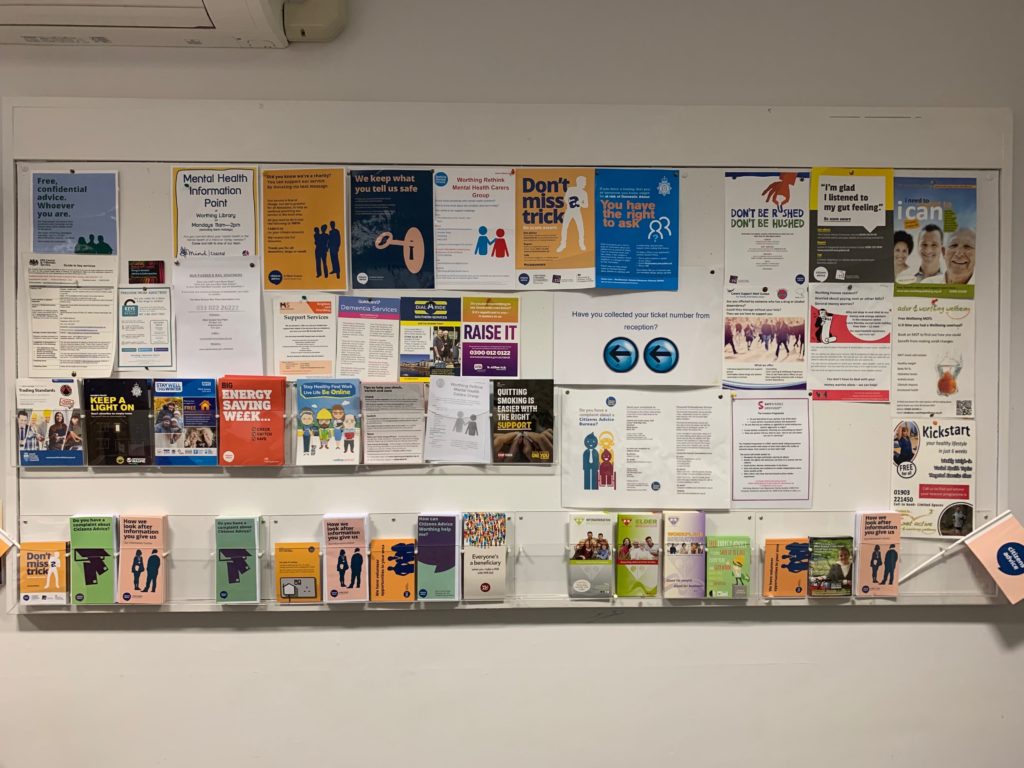
Drop-ins, timetables and events
Many community service providers operate a rolling timetable of activities. For example “Every second Monday there is a benefits drop in session at the library”. These are important referral and access routes for many service users. Some directories aren’t able to record these types of activities.
Community services are used by everyone
Everyone agreed that community services exist to improve our wellbeing. They support us from before we’re born to when we die. We will all access community services at some point in our life, usually during moments when we’re at our most vulnerable. Being treated as human is therefore vital.
Sourcing data with minimal effort
In defining a standard, the sources of community service data are important to consider. One of the main goals of the OpenCommunity standard is to reduce the effort involved in maintaining high quality data. Some community services are regulated at a national level, for example childcare providers may be registered with Ofsted, and adult social care providers are registered and accredited by the Care Quality Commission. As national aggregators, could they provide a source of trusted baseline data?
Where we’re going next
Synthesising research
This week, we are analysing everything we saw and heard in Worthing and Buckinghamshire. We will be pulling out themes, user needs and service needs. We will be working to understand how the OpenCommunity standard could help and what other factors are important to consider.
Research with Service Commissioners in Devon
Next week we are heading to Devon County Council in Exeter to speak with service commissioners across health and social care to better understand their needs.
Week notes #1
Hello.
Welcome to the first week notes from the OpenCommunity team. Week notes are a short weekly round up of what we’ve been learning and where we are going next.
Subscribe to get OpenCommunity week notes delivered to your inbox.
TL;DR *
There are emerging standards out there already for community services, but with mixed levels of adoption. Defining a common data standard may only address part of the problem. Designing trust around the data standard seems to be where the real challenge lives.
* Too long; Didn’t Read – a short summary for busy people.
Thanks
Thanks to all the of the project partners for responding so quickly to a speedy start. Special thanks to Rhian Francis from Adur & Worthing Councils and Ben Unsworth from Buckinghamshire County Council for connecting us with your team on less than a week’s notice. We’re really excited to have got things kicked off and we’re looking forward to the next few months together.
About the project
OpenCommunity is on a mission to discover the need for a community-services data standard. What might become possible if all community directories in the UK were designed in a way that allowed them to talk to each other?
Read the original proposal from the OpenCommunity team.
Question of the week
What is a community service anyway and who are they for?
What we’ve done
Kickoff
Last week we brought together all the project partners for a speedy kickoff, where we explored the story of why. Why are we doing this? Why now? It was important for us to understand the context for community services, the vision for the future and what role a data standard might play.
Prototypes as research tools
A data standard is fundamentally an abstract idea. For non-technical stakeholders it can be difficult to grasp and explore its value. Throw into the mix the complexity of defining community-services and we may be left with a lot of puzzled faces. In the project, we therefore want to take a prototype-driven approach to our research. We use prototypes as discovery tools to help people test and contest the design of a standard and the opportunities it enables. We used sketching in our kickoff to explore the vision:
“What becomes possible if a community-services data standard exists and is adopted?”
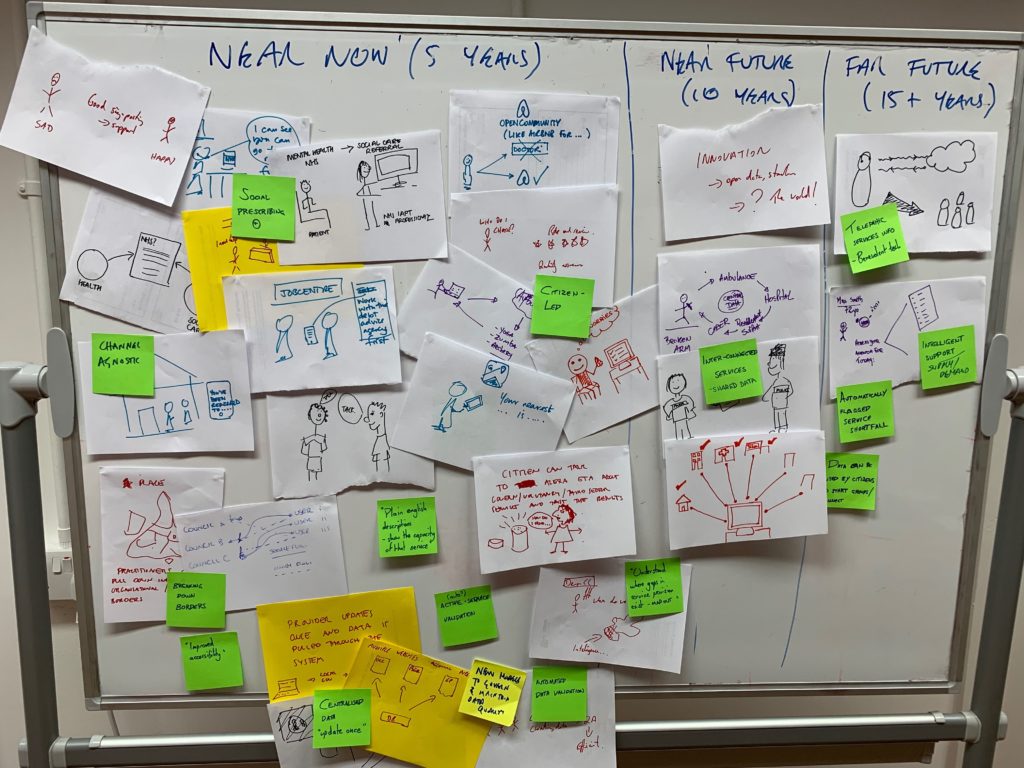
Importantly, the prototypes we make should only demonstrate concepts and cases that become possible because a shared data standard exists. Whilst we already have lots of hypotheses to improve service directories, we are going to park these in the “interesting but explore later” pile.
Start from what we know
There are already data standards and some consensus on how to define community services. The most prominent of which include: OpenReferral, the Locally Delivered Services Standard and Open Eligibility. Service directories have had a similarly extensive innovation, for example: ALISS that both Snook and UrbanTide helped to research and develop. Given there are already workable standards in development, why is it they are not more widely adopted?
Defining a way to evaluate standards for community-services
We’re really excited to be partnering with UrbanTide on this discovery project. Rory, one of UrbanTide’s data leads was involved in building ALISS and knows the challenges of this space well. We want take a robust approach to improvements on existing standards, based on user research to identify where needs are not being met. This week, Rory has been working on a framework to evaluate existing standards. We found a few good resources to help. The Open Standards Guides from ODI have a wealth of resources on implementing open data standards. Equally Rory’s, own Engagement Checklist built from experience is a good starting point.
Research programme
Liv shared this great talk from Will Myddleton about why you should prioritise your research around your riskiest assumptions and hypotheses. At Snook, much like science experiments, we use hypotheses to drive our design work. They allow us to be explicit about our design decisions and use research to validate or invalidate them. Currently we have identified 10 hypotheses that are implicitly part of the vision for this project. You can read and comment on our working hypotheses in our draft research framework.
From four to nine user groups
When we kicked off the project, we at first identified four core types of users. By the end of the week this had grown to nine. Describing the different user types begins to give some shape to just how complex the community-services system is. That list so far is:
- Service users – access community services. Can have a diverse range of needs.
- Referrers – help service users discover and access community services.
- Data managers / custodians – maintain information systems to support service users and referrers find, access and refer services.
- Community service providers – provide a range of services to support people across all stages of life.
- Commissioners – make decisions on which community services are created and/or receive investment.
- Procurement teams – are involved in paying for service directory products.
- Service directory providers – provide information systems to support discovery of services by service users and referrers.
- Standards providers – provide an open, standardised and agreed way of recording data.
- Integrators – need to integrate data from service providers into their own systems, e.g. to build their own referral system.
We’ve been working on a draft research framework to be clear about who we want to engage and how. Our intention is to engage with people from across all of the user groups identified above.
Where we’re going next
Next week we start user research. We’ll be spending two days with Adur & Worthing Councils. We’ll be speaking with the Wellbeing hub team, before spending time with community service providers in Worthing such as homelessness charity Turning Tides.
In Buckinghamshire, we’re out talking to the Family Information Service, the Community Assets Map team and the Buckinghamshire Care Advice Service. We’ll be shadowing, interviewing and running workshops with front-line staff.
Next week we also run our first show & tell, sharing back initial insights from user research and learnings so far.
Challenges
Managing information overload
Starting at a pace has involved lots of document and link sharing. Without good information management in place links can quickly get lost and important insights missed. To help us have a central place for sharing links, we’ve set up a shared folder with Raindrop.io. See some of the links we’ve shared.
Signing off
It’s been a busy week. We’ve already made significant headway into our research and deepening our understanding of the community-services space and the challenges faced. We have still have a lot more to discover and we’re look forward to the next few months.
Procurement update
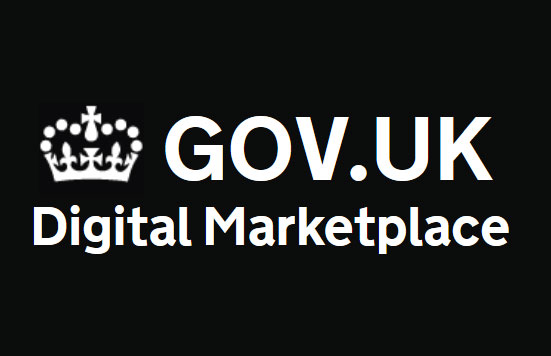
Due to the incredibly tight timeline to deliver this project, we had to publish our original requirements before the Christmas break. This was clearly not ideal, and we would apologise to any supplier that either could not submit to that deadline or had to put in work at short notice to get a submission together. You can read the original requirements on the Digital Marketplace.
Despite the timing, we received 13 submissions, and after shortlisting on 7th January we have invited 6 suppliers to submit a full written proposal by the end of Thursday this week. We are anxious to get a partner in place as soon as possible to get the project up and running and moving
Early conversation with Citizens Advice
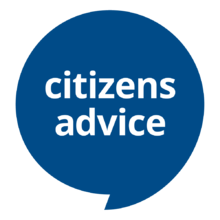
Very good to talk through the project today with Matt White, Head of Delivery at Citizens Advice (with team members Ben Unsworth and Simon Millier). Great to have Citizens Advice thinking through the opportunities, and how they can get involved.
